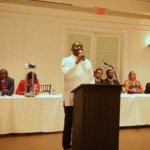The Ministry of Higher Education, Research and Innovation made a significant announcement on Friday, bringing an abrupt end to the activities of the ‘Target Malaria’ project in Burkina Faso, which was funded by Bill Gates. Facilities housing the modified mosquitoes were sealed on August 18, with plans in place to destroy the remaining samples following a strict protocol.
The decision to terminate the project was communicated to the public, stating that all activities related to ‘Target Malaria’ in Burkina Faso have been ceased. This marks the end of a decade-long experiment that began in 2012 when the project was initiated in the country as part of a research consortium led by Imperial College London. The aim was to explore genetic modification as a cost-effective method to control mosquito populations and reduce the transmission of malaria, a disease that claims over 600,000 lives annually in Africa.
In 2019, Burkina Faso became the first African country to release genetically modified mosquitoes into the wild under the leadership of then-President Roch Marc Christian Kaboré. These mosquitoes were engineered to produce mostly male offspring, with the goal of limiting population growth by spreading specific traits through wild mosquito populations. The project received significant financial support from the Bill and Melinda Gates Foundation, positioning it as a groundbreaking initiative against malaria.
Despite securing regulatory approvals from Burkina Faso’s National Biosafety Agency, the National Environmental Assessment Agency, and the Health Research Ethics Committee, the project faced growing resistance from civil society groups. Critics, led by the Coalition for Monitoring Biotechnological Activities in Burkina Faso (CVAB), raised concerns about the risks, lack of transparency, and potential harm associated with the project.
The suspension of the ‘Target Malaria’ project also reflects broader tensions between Burkina Faso’s military-led government and Western-backed NGOs. Since Captain Ibrahim Traoré assumed power in 2022, the administration has been keen on limiting foreign involvement in domestic policies, particularly those linked to high-profile Western donors like Bill Gates.
With the formal shutdown of all activities related to the project in Burkina Faso, the research consortium behind ‘Target Malaria’ has expressed willingness to cooperate with authorities while affirming compliance with national laws and international biosafety standards. This decision represents a setback for genetic approaches to malaria eradication and raises questions about Africa’s willingness to adopt radical biotechnology in combating the disease.
As Burkina Faso takes a stand against genetically engineered mosquitoes, the outcome of this episode underscores the complexities surrounding the intersection of science, public health, and national sovereignty.







